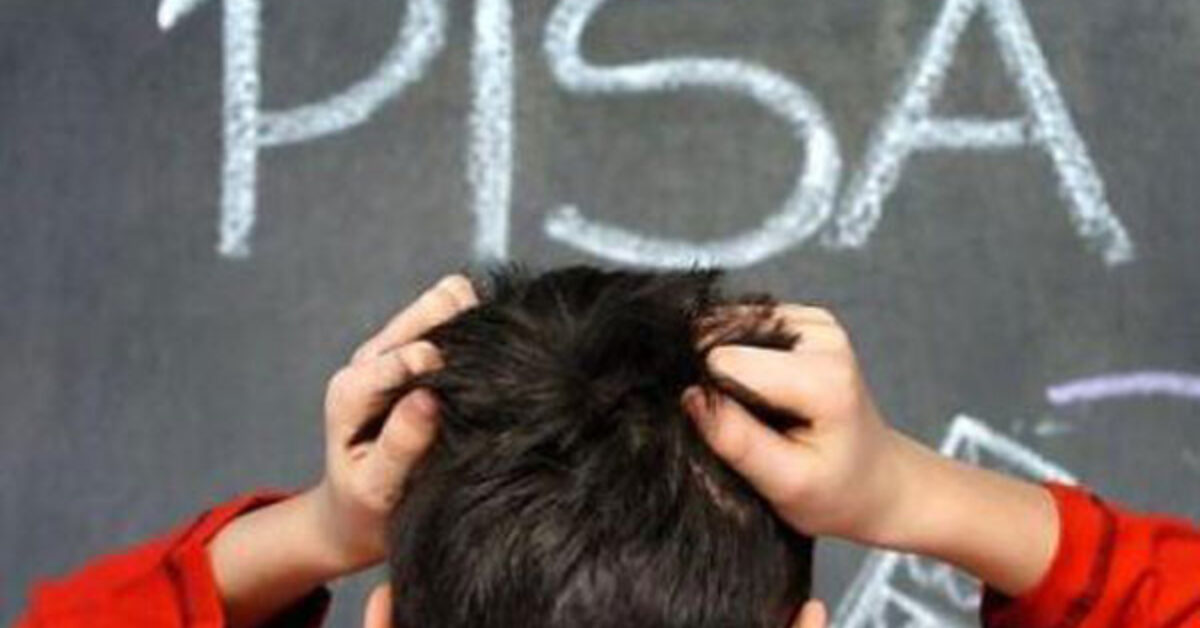France and the United States are used to considering themselves world leaders in everything from business to diplomacy to culture. So when the latest PISA study was released, both countries were in for a reality check.
The Program for International Student Assessment, or PISA, is an exam administered by the Organization for the Economic Cooperation and Development. Every three years, 15-year-olds across the globe are evaluated for skills in mathematics, science and reading. The test is not supposed to favor particular education systems, but to analyze how well students in different countries can demonstrate what they have learned. This year, French and American students were dubbed solidly mediocre.
The reaction in the US ranged from indifference, to outrage to complaints about the way the test was administered. Time magazine noted, that the top scorer in all three categories was Shanghai, which is better-educated than China as a whole. “By not providing full national data, China is in effect cheating,” wrote Time. The Washington Post’s Valerie Strauss argued that the United States has never scored very highly on the exam and should certainly not attempt to model its education system after the likes of top scorers like Singapore, South Korea and Japan.
French journalists meanwhile wrung their hands about the country’s fall from grace, reporting that the country dropped five spots compared to other developed countries in math. At the same time, rivals like Germany and even Poland climbed in the rankings, and the Netherlands held steady. Being ranked higher than the Americans did not appear to be any consolation.
Despite wildly different education systems and styles, journalists from both nations reacting to the news fretted similarly over socioeconomic diversity and the failure of schools to meet the needs of disadvantaged students.
In France, which was ranked 25 among 65 countries, journalists argued that the country’s middling results showed the inequality of the school system. “The school, ostensibly for everyone, is primarily built for an elite, and reveals itself incapable of success among the least privileged children,” Mattea Battaglia and Aurélie Collas at Le Monde stated. The newspaper reports that if the exam had only looked at students from privileged backgrounds, the country would have ranked 13th, whereas if the test had only assessed students from disadvantaged backgrounds, France would slip to the 33rd spot.
Stateside, The Atlantic highlighted educational inequality in America. “The U.S. also has a lower than average number of ‘resilient students,’ which PISA defines as “students who are among the 25 percent most socio-economically disadvantaged students but perform much better than would be predicted by their socio-economic class,” the magazine wrote.
Of course, political backlash followed. In France, reaction was swift from the teachers’ unions. “At the moment when too many selfish arguments crop up, PISA 2012 needs to sound the alarm for French society to come together against inequality and school failure,” SE-Unsa, a union, said, according to Le Figaro. Politicians weighed in as well, minister of education Vincent Peillon saying the test came as the system was “in the midst of large structural reforms,” according to Le Monde.
The United States is also implementing education reform and some American journalists used the PISA results as an excuse to question whether those measures are working, even while referring to programs that are not yet fully in place. “The current ‘education reform agenda’ is bankrupt,” Marc Tucker, president of the National Center on Education and the Economy, said to The Christian Science Monitor. “There is no evidence that it can succeed. It is time to embrace a very different education reform agenda, the one that has proven itself in the PISA rankings.”






